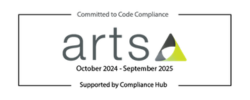Uniting to implement guideline-recommended care in type 2 diabetes to transform lives

This article has been written and funded by AstraZeneca. AstraZeneca has provided sponsorship funding towards the DPC programme but has had no input into the content other than AstraZeneca promotional symposia.
By 2030, over 5.5 million people across the UK could have diabetes – 90% of which will be Type 2 Diabetes (T2D). (1,2) Rates of T2D are rising rapidly, particularly among younger age groups.(3) These stark numbers illustrate the urgency to act on the devastating impact of T2D morbidity, mortality, and cost.(4)
The latest evidence shows how T2D puts patients at higher risk of developing cardiovascular disease (CVD), renal dysfunction, and other vascular complications.(5) Yet, despite important updates to NICE NG28 T2D guidelines over two years ago, about three out of four patients in England with T2D are still not prescribed essential diabetes medicines.(6,7) These NICE-recommended medicines can potentially prevent life-threatening heart attacks, kidney failure, and strokes.(5,8,9)
This leaves thousands of patients more vulnerable to avoidable and severe health complications from T2D.(10) Every week in the UK, diabetes leads to almost 2,000 cases of heart failure (HF), 530 heart attacks, 190 cases of end stage kidney disease(11), 680 strokes, and 169 amputations.(10) Sadly, each week, more than 400 people with T2D will die prematurely in England alone.(12)
Patients also face an unacceptable postcode lottery accessing diabetes medicines.(13) For example, in London, patients are 59 percent less likely to have access to NICE-approved diabetes medicines than those in Wales.(13) This failure is detrimental to patient care and also denies the NHS and society the full economic benefits of these much-needed medicines.(14) The financial burden of diabetes to the NHS is astronomical – the direct cost of T2D in the UK was £10.7 billion in 2021/22, with just over 40 percent related to diagnosis and ongoing management of diabetes, and around 60 percent of this expenditure linked to preventable complications.(15) Prescribing medications for complications of diabetes costs around three to four times more than the cost of prescribing routine medications for the treatment of diabetes.(16)
Many barriers hinder the adoption of the NG28 guidelines, including insufficient understanding of the connection between T2D and cardiovascular and renal complications.(14) When combined with the challenges of competing priorities, patients’ lives are put at risk leading to further strain on the NHS.(15) Ultimately, these guidelines have the potential to accelerate the uptake of innovative medicines resulting in more effective disease prevention and a reduction in the risk of other health complications.(17)
AstraZeneca is committed to changing the status quo across diabetes care. But we know we can’t do this alone, so we are calling on the diabetes community to move beyond glycaemic control in T2D care and advocate for implementation of guideline-recommended therapies. By acting in partnership, we can save lives and transform T2D outcomes, while reducing healthcare inequalities and enhancing NHS resilience. Without urgent collaborative action, the implications of T2D will be profound, affecting not only individuals and their families but the broader sustainability of our health system.(17)
We are delighted to return as the headline diamond sponsor of the 2024 Diabetes Professional Care (DPC), a vital platform uniting the UK's diabetes community to advance prevention, treatment, and management of diabetes. Our renewed partnership with DPC reinforces our commitment to improving future diabetes care and long-term health outcomes. The time for action is now - together, we can make a difference and save lives.
References
(1) NHS, News, NHS scheme reduces chances of Type 2 diabetes for at risk adults Available at: https://www.england.nhs.uk/2023/02/nhs-scheme-reduces-chances-of-type-2-diabetes-for-at-risk-adults/#:~:text=Previous%20estimates%20suggest%20that%20the,almost%209%25%20of%20the%20population. Last accessed: September 2024
(2) NHS, Diabetes, Available at: https://www.nhs.uk/conditions/diabetes/. Last accessed: September 2024
(3) Diabetes UK, Number of people living with diabetes in the UK tops 5 million for the first time. Available at: https://www.diabetes.org.uk/about-us/news-and-views/number-people-living-diabetes-uk-tops-5-million-first-time. Last accessed: September 2024
(4) Diabetes UK. Cost of devastating complications highlights urgent need to transform diabetes care in the UK. Available at: https://www.diabetes.org.uk/about-us/news-and-views/cost-complications-highlights-urgent-need-transform-diabetes. Last accessed: September 2024
(5) Marassi, M, et al. The cardio-renal-metabolic connection: a review of the evidence. Cardiovasc Diabetol 22, 195 (2023). Available at https://doi.org/10.1186/s12933-023-01937-x. Last accessed: September 2024
(6) Seidu, S; Alabraba, V; Davies, S et al. SGLT2 Inhibitors - The New Standard of Care for Cardiovascular, Renal and Metabolic Protection in Type 2 Diabetes: A Narrative Review. Diabetes Ther. 2024;15(5):1099-1124.
(7) Young, KG; Hopkins, R; Shields, BM et al. Recent UK type 2 diabetes treatment guidance represents a near whole population indication for SGLT2-inhibitor therapy. Cardiovasc Diabetol. 2023;22(1):302.
(8) Yau K, et al. Prescribing SGLT2 Inhibitors in Patients With CKD: Expanding Indications and Practical Considerations. Kidney Int Rep. 2022 May 5;7(7):1463-1476. doi: 10.1016/j.ekir.2022.04.094
(9) Roddick, A.J. et al. UK Kidney Association Clinical Practice Guideline: Sodium-Glucose Co-transporter-2 (SGLT-2) Inhibition in Adults with Kidney Disease 2023 UPDATE. BMC Nephrol 24, 310 (2023).
(10) H Syed et al. Changing the way type 2 diabetes is managed. Journal of Prescribing Practice. 08 October 2021. Available at: https://www.prescribingpractice.com/content/better-practice/changing-the-way-type-2-diabetes-is-managed/. Last accessed: September 2024
(11) Kidney Research UK and Diabetes UK Joint Statement. Available at: https://www.kidneyresearchuk.org/research/partnerships-collaboration/kidney-research-uk-and-diabetes-uk-joint-statement/#:~:text=Right%20now%2C%20there%20are%2022%2C600%20people%20in%20the,because%20of%20damage%20directly%20caused%20by%20their%20diabetes. Last accessed: September 2024.
(12) Gov UK, Public Health England, Health matters: preventing Type 2 Diabetes. Available at: https://www.gov.uk/government/publications/health-matters-preventing-type-2-diabetes/health-matters-preventing-type-2-diabetes. Last accessed: September 2024
(13) NHS Confederation. Transforming Lives, Improving health outcomes: tackling the true cost of variation in uptake of innovative medicines: Available from: https://www.nhsconfed.org/publications/transforming-lives-improving-outcomes. Last accessed: September 2024
(14) National Institute for Health and Care Excellence (NICE). Putting NICE Guidance into Practice. Resource Impact Report: Type 2 Diabetes in Adults: Management. Last updated: February 2022. Available at: https://www.nice.org.uk/guidance/ng28/resources/resource-impact-report-type-2-diabetes-and-cardiovascular-risk-update-pdf-10958006557. Last accessed: September 2024
(15) Hex, N. et al. Estimation of the direct health and indirect societal costs of diabetes in the UK using a cost of illness model. Diabetic Medicine. 2024;00:e15326.
(16) Cost of Diabetes. Available at: Last accessed: https://www.diabetes.co.uk/cost-of-diabetes.html.September 2024
(17) EFPIA, Revealing policy barriers in diabetes care: how we can improve outcomes. Available at: https://www.efpia.eu/media/677331/revealing-policy-barriers-in-diabetes-care.pdf. Last accessed: September 2024
GB-59963 | DOP September 2024



)
)
)
)

)
)
.jpg/fit-in/1280x9999/filters:no_upscale())
.png/fit-in/1280x9999/filters:no_upscale())
)
)
)
